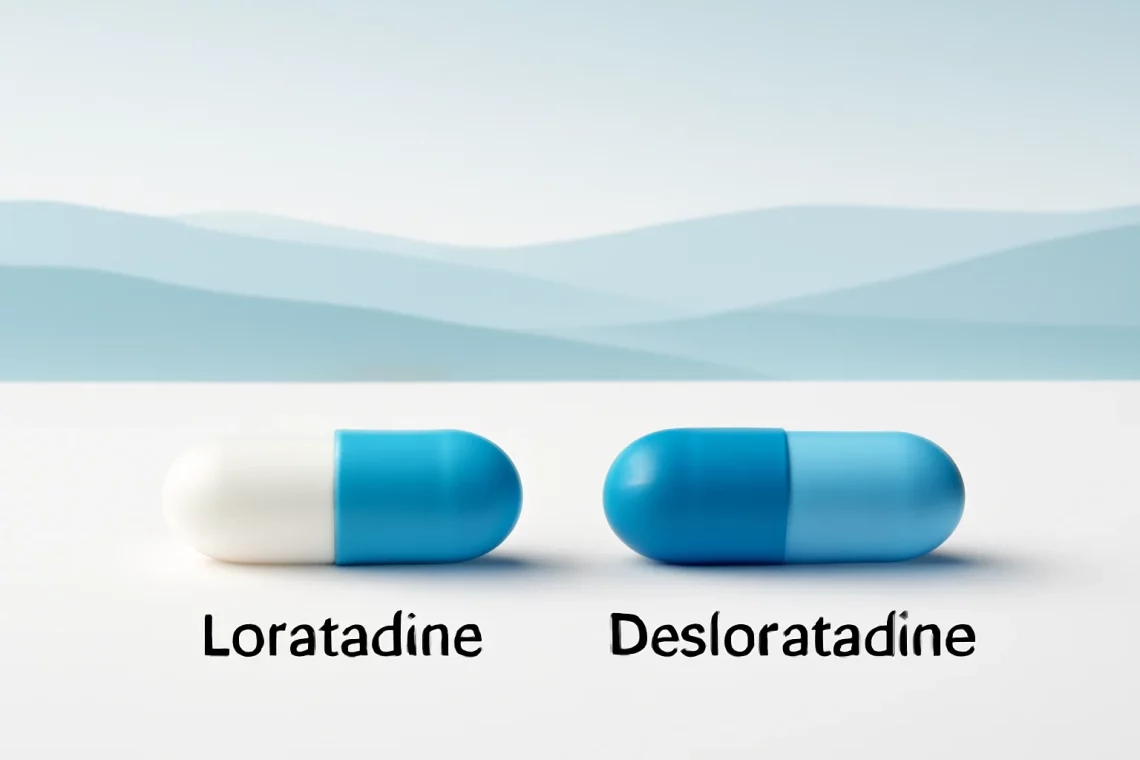
Loratadine vs Desloratadine: Key Differences Explained
Loratadine and desloratadine are antihistamines widely used for the treatment of allergic conditions. Both of these medications help alleviate symptoms associated with allergies, such as sneezing, runny nose, and itchy eyes. They belong to a class of drugs known as second-generation antihistamines, which are known for causing less sedation compared to first-generation antihistamines. This distinction makes them more appealing to individuals who need to manage allergy symptoms without the drowsiness that often accompanies other allergy medications.
Understanding the differences and similarities between loratadine and desloratadine is crucial for those seeking effective allergy relief. While they share a common purpose, the way they act in the body and their specific applications can vary. Additionally, individual responses to these medications can differ, making it essential to know which option may be best suited for your needs. In this article, we will explore the characteristics, effectiveness, and safety profiles of loratadine and desloratadine, helping you make an informed decision about your allergy management options.
What is Loratadine?
Loratadine is a non-sedating antihistamine that is primarily used to relieve symptoms associated with hay fever and other allergies. It works by blocking the action of histamine, a substance in the body that causes allergic symptoms. Loratadine is known for its long-lasting effects, typically providing relief for up to 24 hours with a single dose.
The medication is available over-the-counter in various forms, including tablets, liquid gels, and syrup. One of the significant advantages of loratadine is its minimal sedative effects, allowing individuals to take it without worrying about drowsiness interfering with their daily activities. This makes it an ideal choice for those who are looking for allergy relief while maintaining their productivity.
Loratadine starts to take effect within one to three hours after ingestion, making it a fast-acting option for those in need of immediate relief. It is generally well-tolerated, with few side effects. Some individuals may experience mild headaches, fatigue, or dry mouth, but these are usually temporary and resolve quickly.
In addition to treating seasonal allergies, loratadine can also be used to alleviate symptoms of chronic urticaria, or hives. This condition can be uncomfortable and distressing, and loratadine’s effectiveness in managing the itch and rash can greatly improve the quality of life for those affected.
It’s important to note that while loratadine is effective for many individuals, it may not work for everyone. Some people may require a different approach to managing their allergies, including other antihistamines or a combination of treatments. Consulting with a healthcare professional can provide guidance on the best course of action based on individual needs and medical history.
What is Desloratadine?
Desloratadine is a metabolite of loratadine, meaning it is produced in the body after loratadine is ingested. As a second-generation antihistamine, desloratadine shares many of the same properties as its predecessor but is often noted for its enhanced efficacy and longer duration of action. It is primarily used to treat allergic rhinitis and chronic idiopathic urticaria, similar to loratadine.
One of the standout features of desloratadine is its ability to provide more consistent symptom relief. Because it is a metabolite, it may offer a more potent effect with fewer side effects, making it a preferred choice for some individuals. Desloratadine is also available over-the-counter in various forms, including tablets and syrup.
The onset of action for desloratadine is similar to that of loratadine, typically taking about one to three hours to start working. It also offers a 24-hour relief window, making it convenient for daily use. Its non-sedating properties mean that individuals can take it any time of the day without the worry of drowsiness.
Clinical studies have indicated that desloratadine may be more effective for certain allergic conditions, especially in individuals who have not responded well to loratadine. This variability in response underscores the importance of personalized treatment plans for allergy management. Patients who find loratadine inadequate may benefit from switching to desloratadine under the guidance of a healthcare professional.
Like loratadine, desloratadine is generally well-tolerated. Side effects are typically minimal and may include dry mouth, headache, or fatigue. However, severe allergic reactions are rare. Patients should always discuss their medical history and any other medications they are taking with their healthcare provider to avoid potential interactions.
Comparative Effectiveness: Loratadine vs. Desloratadine
When comparing the effectiveness of loratadine and desloratadine, several factors come into play. Both medications are effective for managing allergy symptoms, but individual responses may vary. Clinical trials have shown that desloratadine may have a slight edge in terms of potency and duration of action, but loratadine remains a popular choice due to its accessibility and proven track record.
The choice between these two medications often depends on the severity of symptoms, personal preferences, and previous experiences with antihistamines. Some individuals may find loratadine sufficient for managing mild to moderate symptoms, while others may require the enhanced relief that desloratadine can provide, especially if they experience more severe allergic reactions.
Dosage is another factor to consider. Loratadine is typically taken once daily in a dose of 10 mg for adults and children over the age of six. Desloratadine, on the other hand, is also taken once daily but usually in a 5 mg dose for adults and children over the age of 12. This difference in dosing may influence a patient’s choice, particularly if they prefer a lower dose option.
It’s essential to note that while both medications are available without a prescription, consulting a healthcare professional before starting any new medication is advisable. A medical professional can help assess the individual’s specific allergy symptoms and recommend the most appropriate treatment based on their health history and lifestyle.
In summary, while both loratadine and desloratadine are effective for treating allergic conditions, the choice between them should be made based on individual needs, preferences, and the advice of a healthcare provider.
Safety and Side Effects
Both loratadine and desloratadine are considered safe for most individuals when used as directed. They are well-studied medications with established safety profiles. However, it is essential to be aware of potential side effects and contraindications associated with their use.
Common side effects for both medications are generally mild and include headaches, dry mouth, and fatigue. These side effects are typically short-lived and resolve as the body adjusts to the medication. Serious side effects are rare, but individuals should seek medical attention if they experience symptoms like difficulty breathing, swelling of the face or throat, or severe dizziness.
Patients with certain medical conditions, such as liver or kidney issues, should consult their healthcare provider before starting either loratadine or desloratadine. Additionally, pregnant or breastfeeding women should also seek medical advice before using these medications to ensure safety for both the mother and child.
Interactions with other medications are also a consideration. While loratadine and desloratadine are less likely to interact with other drugs compared to first-generation antihistamines, it is always advisable to inform your healthcare provider about all medications, supplements, and vitamins you are taking. This will help them provide the best care and avoid any potential adverse reactions.
In conclusion, while both loratadine and desloratadine are generally safe and effective options for managing allergy symptoms, it is essential to use them responsibly and under the guidance of a healthcare professional.
**Disclaimer**: This article is not intended to serve as medical advice. Always consult a healthcare professional for any health concerns or before starting new medications.




